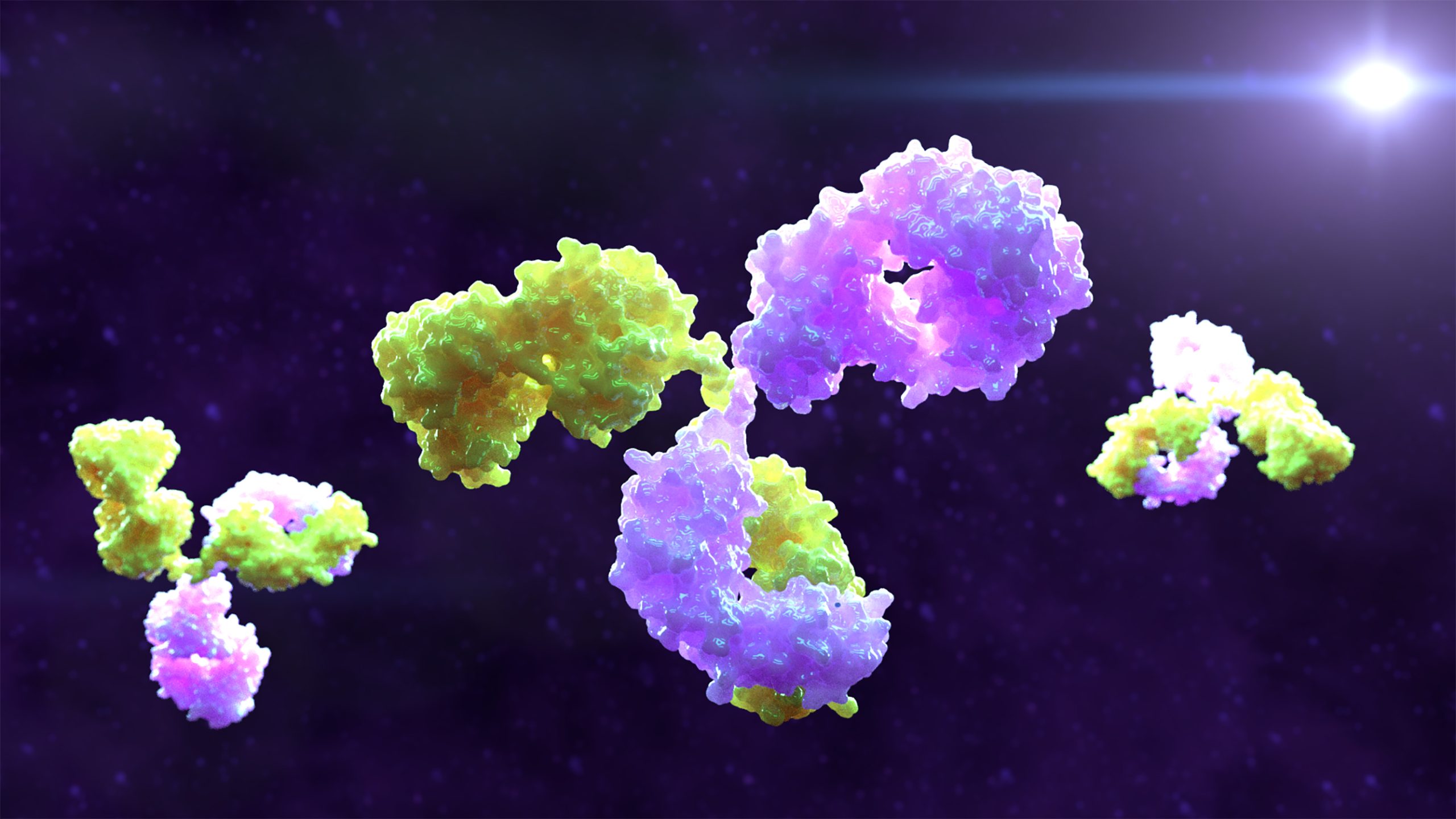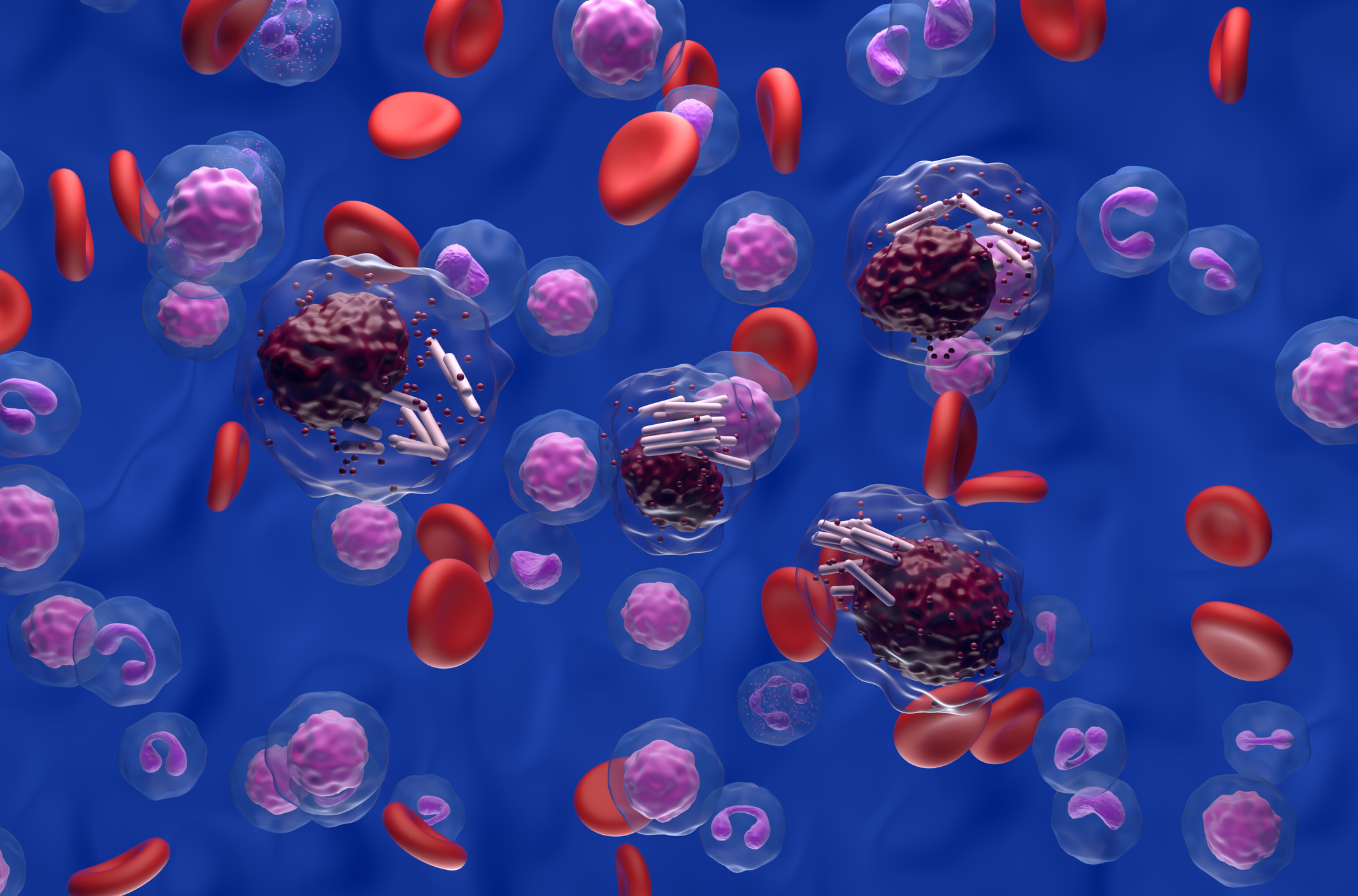
NVG-111, a first-in-class, humanized, tandem, single-chain variable fragment ROR1xCD3 bispecific T-cell engager, showed promising efficacy in patients with chronic lymphocytic leukemia (CLL) or mantle cell lymphoma (MCL). The results were presented at the 2022 ASCO Annual Meeting.
The phase I/II study included patients with relapsed/refractory CLL or MCL who had received two or more prior systemic therapies and achieved a stable or partial response to the last line of therapy.
NVG-111 was delivered as continuous intravenous infusion over 21 days per cycle, with each patient typically receiving three cycles. The first three single-patient cohorts were subjected to accelerated dose titration over a range of 0.3 µg/day to 30 µg/day. Dose-escalation steps in the subsequent, multi-patient cohorts were determined using a continuous reassessment method with overdose control.
As of January 2022, six male patients (median age, 60 years; five with CLL) had been enrolled. Of those patients, three were placed into each of the accelerated dose titration cohorts and the remaining three into a 30 µg/day flat dosing cohort. All patients continued ibrutinib therapy while receiving NVG-111.
The most common adverse events were grade 1 lethargy, headaches, nausea, vomiting, and thrombocytopenia. All three patients exposed to a flat dose of NVG-111 30 µg/day experienced grade 1 cytokine release syndrome (CRS) during week one of cycle one. One patient developed transient, grade 3 immune effector cell-associated neurotoxicity syndrome-like symptoms (ICANS). Neither CRS nor ICANS were observed in subsequent treatment cycles at the 30 µg/day dose level.
Five patients completed efficacy assessment after three treatment cycles, with all patients responding. Of those patients, two had undetectable minimal residual disease (MRD) in the blood, one of which was MRD-negative in the bone marrow.
Dose escalation is ongoing to determine a recommended phase II dose and to assess durability of response.
Reference
Jasani P, Townsend W, Asher S, et al. First-in-human phase I study of a ROR1-targeting bispecific T-cell engager (NVG-111) shows evidence of efficacy in patients with relapsed/refractory CLL and MCL. Abstract #7535. Presented at the 2022 American Society of Clinical Oncology Annual Meeting, June 3-7, 2022.













 © 2025 Mashup Media, LLC, a Formedics Property. All Rights Reserved.
© 2025 Mashup Media, LLC, a Formedics Property. All Rights Reserved.